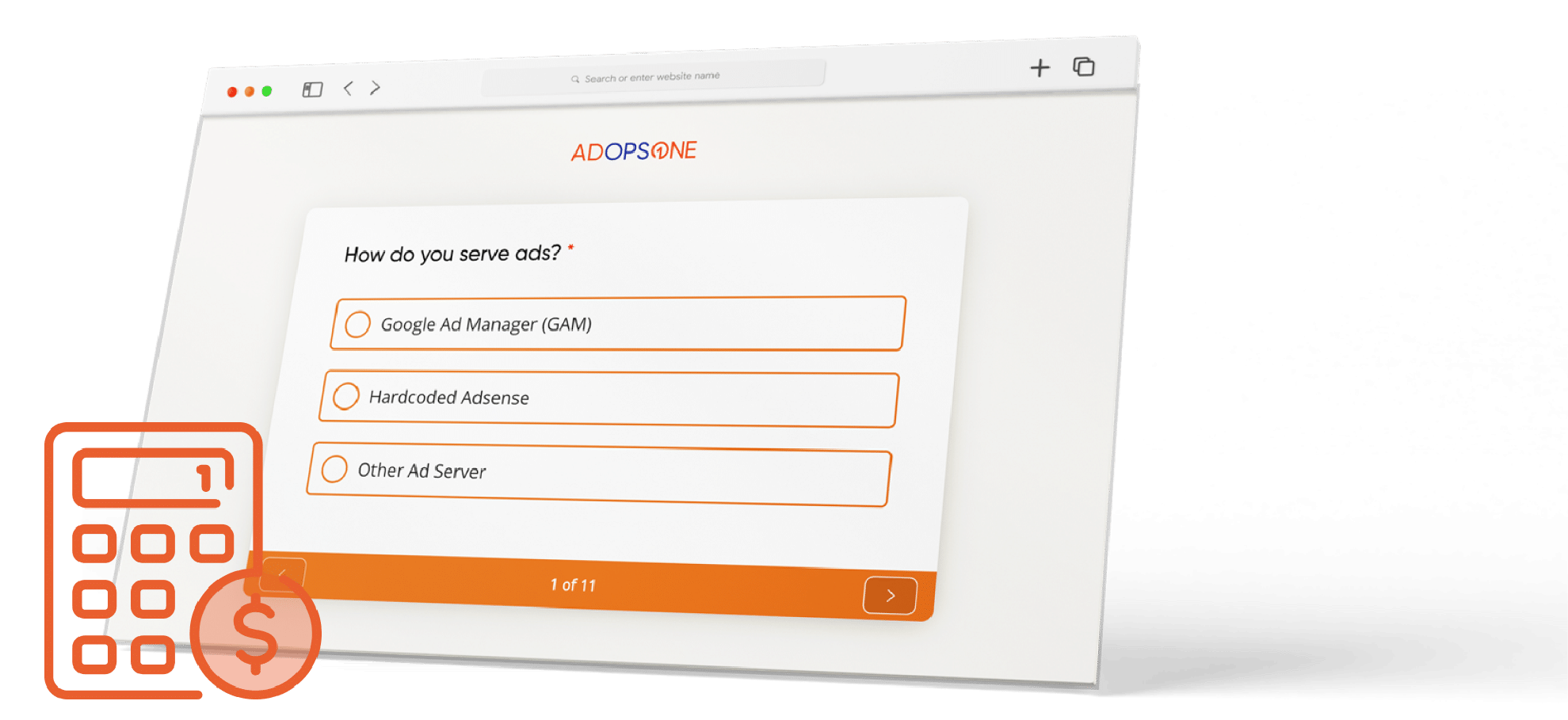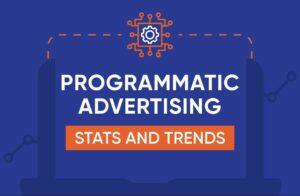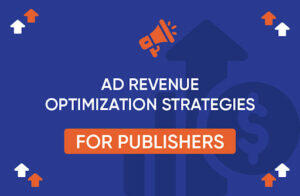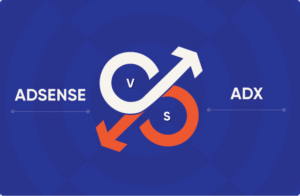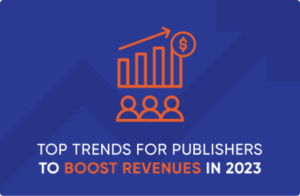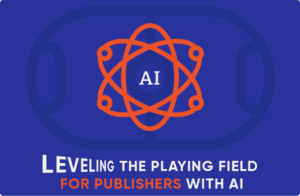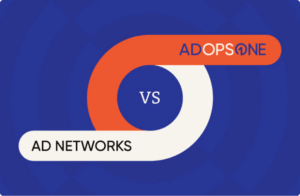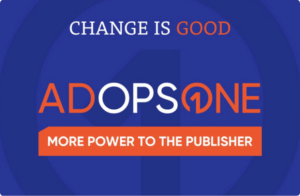Ad operations, or ad ops for short, is the engine that powers the delivery and management of digital advertising.
Ad ops ensures the smooth running of digital ad campaigns, making sure that ads not only reach their intended audiences but also have the maximum impact when they do. This operational efficiency translates into increased revenues for publishers, making ad ops an indispensable part of their business strategy.
Given its centrality to a publisher’s monetization strategy, successful publishers either have their own in-house ad ops teams, or they seek the assistance of third-party ad ops experts.
Join us as we explore the world of ad ops, look at some important tools of the trade, and get to grips with when it makes sense for publishers to do their ad ops in-house, and when it might be time to hire third-party experts.
Table of Contents
-
- What Is Ad Operations?
- What Is an Ad Operations Team?
- Best Ad Operations Tools for Publishers
- Why Work With an Expert Ad Operations Assistant?
What Is Ad Ops?
Ad ops refers to the processes and systems that support the sale and delivery of online advertising. It encompasses everything from setting up, managing, and optimizing online ad campaigns to ensuring seamless transactions between advertisers and publishers.
What ad ops is not, is ad monetization. Partnering with the best ad networks is essential for generating better eCPMs (effective cost per mille). But merely signing up with an ad network or ad exchange doesn’t automatically guarantee a steady flow of ad revenue. Many unexpected obstacles can pop up, and that’s where ad ops comes in.
For example, while a publisher’s ad network is responsible for showing the best and the highest paying ads it has access to, it isn’t responsible for ensuring said ads are shown to audiences with the best chance of converting. This is an ad ops function.
What Is an Ad Ops Team?
An ad ops team is a group of individuals responsible for managing, implementing, and optimizing digital ad campaigns. They also monitor ad campaign performance based on key metrics such as click-through rates (CTRs) and conversions. Using this data, they adjust campaigns, maintain CPMs and optimize fill rates to maximize ad revenue.
A good ad ops team is usually made up of experts adept at performing several roles such as those of ad campaign managers, ad schedulers, or ad traffickers.
Their work involves continuous scrutiny and management of demand partners, ensuring optimal use of ad spaces, and swift resolution of any technical glitches that might impact an ad’s performance.
The responsibilities of an ad ops team can be divided into two broad buckets—direct and programmatic.
Direct Ad Ops
Direct ad ops includes all functions that require direct involvement in the creation, coordination, scheduling, and management of ad campaigns.
Direct ad ops aims to maximize an ad campaign’s reach by working on factors such as placement of banner ads, interstitials, pop-ups, optimizing visibility through strategic timing, monitoring third-party ad tags, and so on.
Here’s a breakdown of different direct ad ops functions:
-
- Trafficking: Ad traffickers run campaigns using an ad server to increase referrals to publishers’ websites. They handle tracking and delivering ads across multiple ad exchanges, monitor third-party ad tags from various vendors, and resolve technical issues that may undermine campaign execution.
-
- Scheduling: Ad scheduling involves ensuring digital ads are delivered to various platforms within specific time slots for optimal reach. Ad ops teams understand the significance of timing and seasonality in reaching the target audience.
-
- Optimization: Ad ops teams need to ensure that all ads that appear on a publisher’s website are compliant with Google’s policies, don’t impact its core web vitals (CWVs), and don’t bog down its page load speeds. All these factors influence cost-per-click (CPC) rates, potentially affecting ad revenue in the process.
These teams also strive to perform quality analysis (QA) and testing on new products to see how they’re performing. For example, at AdOpsOne, we offer publishers a suite of ad monetization solutions including a header bidding solution, a high viewability refresh (HVR) solution that refreshes ads to improve viewability and engagement, and an ad slot optimization solution called SPACE that smartly detects additional ad slots on a page where ad units can be inserted organically.
Each time we implement any one of these solutions, we constantly monitor the publisher’s website to track how the solution is performing, while continuously assessing the need for implementing additional solutions to maximize revenue.
Programmatic Ad Operations
Programmatic ad ops includes the more technical aspects of managing inventory demand from demand side partners (DSPs), yield management, and so on.
Here’s a breakdown of different programmatic ad ops functions:
-
- Demand Management: Large publishers often have sizeable sales units tasked with generating potential sales and leads. Ad ops teams manage the demand generated, handle contractual matters, negotiate on the publisher’s behalf, and follow up on agreements to ensure they are fulfilled.
-
- Yield Management: Yield management involves analyzing and streamlining all aspects of online advertising operations to minimize costs and maximize profits. For instance, it may include redesigning a website’s layout to make ad space more prominent.
Yield management also includes finding the right balance between CPMs and fill rate—something publishers often struggle with. While a higher CPM means more revenue per ad unit, a higher fill rate means the ability to display more ad units on the page. Often, these two metrics are inversely related to each other, as having too many ads can lower a page’s quality and disrupt user experience. This in turn means advertisers would be less likely to pay more for every 1,000 impressions.
A good ad ops team knows how to maximize fill rate without leaving your page looking so overwhelmed with ads that it brings down your CPMs.
Best Ad Ops Tools for Publishers
Ad ops teams need a robust set of tools if they are to deliver high-level results. Here are some of the best platforms and programs publishers can leverage for their own ad operations.
1. AdOpsOne Dashboard
AdOpsOne’s dashboard automatically pulls complex data from Google Ad Manager (GAM), Google Analytics, and demand partners into a single view that simplifies revenue strategy development. The dashboard saves teams hours of manual monitoring and reporting by consolidating complete data from every channel.
2. Google Publisher Console
As a GAM debug tool, this platform is adept at identifying distribution-specific errors by inspecting line items. It tests page latency, ad tags, demand efficiency, and delivery speed, comprehensively auditing a publisher’s ad ops.
3. Video Tag Validators
Tools like the Video VAST/VPAID Tag Validator by Tremor are essential for ensuring the smooth running of video ads. It validates and checks the expected behavior of an ad tag, allowing for custom adjustments in various types of online video advertising and banner sizing.
4. HTML Code Cleaner
HTML code cleaners such as DirtyMarkUp or HTMLTidy are crucial for ad ops professionals. They ensure that integrating online ads into a website’s HTML code doesn’t disrupt site layout and presentation, while keeping said ads tidy and visually appealing.
Each of the above tools offers unique features that can help ad ops teams manage and optimize their operations. Publishers that integrate them can streamline their operations and maximize their ad revenue.
Why Work With an Expert Ad Ops Assistant?
Large publishers or ad agencies usually have their own in-house ad operations teams. However, not every business has the resources to build and manage its own in-house team.
This is where an expert ad ops assistant such as AdOpsOne comes in handy. We combine decades of experience in the ad tech industry with cutting-edge AI to provide publishers with end-to-end support for their ad ops.
Here are some of the benefits of working with a specialized ad ops assistant:
-
- Access specialized expertise: A good ad ops service provider brings with it the expertise and experience of seasoned professionals who possess a deep understanding and specialized knowledge of the ad tech space. Being well-versed in a variety of industry scenarios, these professionals can devise optimal ad strategies, boosting ad revenue potential in the process.
-
- Flexibility and scalability: As publishers grow, so too will their ad ops needs. Working with a third-party ad ops expert offers the flexibility to scale without worrying about recruitment or training.
-
- Access the latest ad tech: The digital advertising industry is growing and diversifying into new areas such as mobile advertising, real-time bidding (RTB) platforms, data management, and in-game advertising, to name a few. All this makes managing ad ops more complex. At AdOpsOne, we believe firmly in leveling the playing field by giving publishers access to the same tech demand-side partners use to optimize their CPMs and return on ad spend (ROAS).
-
- Dedicated support: A good ad ops assistant provides its publishers with dedicated support across a range of issues. For example, we at AdOpsOne, not only take care of the day-to-day tasks of running ad ops for our clients, but we also help them liaise with their pre-bid partners on matters that are beyond tier technical capacity. We also help them to on-board existing demand partners and connect with newer ones. In short, we act as their in-house ad ops team.
-
- Save costs: With an expert third-party ad ops assistant, publishers can significantly reduce costs associated with hiring, training, and maintaining an in-house team. These savings can then be reinvested into core business areas.
Final Thoughts
Ad ops are both critical and highly complex. Publishers who lack the resources to build their own competent ad operations team can benefit from the expertise and cost savings that partnering with an external ad ops expert brings.
AdOpsOne provides end-to-end services for publishers using GAM, while allowing publishers to retain complete control over their GAM account. Our human-guided AI tech has helped our publishing partners increase their eCPMs by an average of 30-300%.
Get in touch with AdOpsOne today to find out more.

